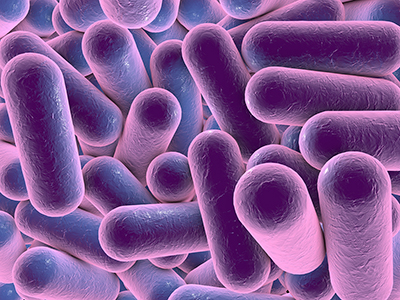Pre, Pro, Anti… What Are All These “Biotics”?
You’ve probably heard the words probiotics, prebiotics, and antibiotics before, but what are they, exactly? All three affect your gut flora but in different ways. It may help to think of them as seeds, fertilizer, and herbicides, respectively:
 Probiotics are like seeds. They can grow into plants on their own, but they thrive much better if they’re treated properly, with ample amounts of water, fertilizer and sunshine.
Probiotics are like seeds. They can grow into plants on their own, but they thrive much better if they’re treated properly, with ample amounts of water, fertilizer and sunshine. - Prebiotics are like fertilizer. A mound of manure isn’t going anywhere on its own. But added to earth sprinkled with seeds, it helps them to sprout, grow and blossom. This manure can also help drive off other organisms who might not find it particularly inviting.
- Antibiotics are like herbicides. They’re useful when trying to kill unwanted plants, like weeds. But the plants you care for are likely to take a serious hit as well. The use of herbicides poses another problem. If they’re overused, they can actually help herbicide-resistant weeds proliferate to the point that they become unmanageable. If you repeatedly kill off weeds that can be killed with an herbicide, you may eventually be left with those that can’t. Soon, they’ll take over the entire field and you’ll have no weapons left with which to fight them.
The synergistic use of probiotics and prebiotics is referred to as symbiotics or microbiome therapy. Probiotic products will provide your gut with all the strains of bacteria it needs to perform a list of biological functions. This list is growing all the time as new findings emerge from ongoing research, and includes, but is not limited to, helping with constipation, weight loss, immune function, mood and HDL cholesterol.[1][2][3][4][5] The presence of good bacteria will also help prevent the invasion of bad ones (sorry, this seat’s taken!).[6][7] Keep in mind, they can’t do their job if they don’t make it past the harsh acids in your stomach (they need protection!).
 Prebiotic products, which include high fiber vegetables, fruits and whole grains will feed your gut flora with all the nutrients they need to survive and thrive (dietary fiber may not be appetizing to you, but they love it!)." [8]
Prebiotic products, which include high fiber vegetables, fruits and whole grains will feed your gut flora with all the nutrients they need to survive and thrive (dietary fiber may not be appetizing to you, but they love it!)." [8]
And antibiotics can help you if your body becomes a host to bacteria that shouldn’t be there. But it is extremely important not to use antibiotics unless you really need them. Taking antibiotics when you have, for example, a viral infection will only kill a large portion of your healthy gut flora, it won’t fight what’s affecting you. It may further contribute to the looming problem of drug-resistant bacteria.[9] Avoidance of antibiotics, unless prescribed by a doctor, should tie into an overall holistic approach toward managing your gut flora.
So, make sure you take care of your gut like a farmer takes care of his or her fields. Tend to it every day!
[1] Amenta et al. Diet and Chronic Constipation: Benefits of Oral Supplementation with Symbiotic Zir Fos (Bifidobacterium longum W11 + FOS Actilight). Acta Biomed. 2006 Dec; 77(3): 157-62.
[2] Kim et al. Effects of Weight Loss Using Supplementation with Lactobacillus Strains on Body Fat and Medium-Chain Acylcarnitines in Overweight Individuals. Food & Function. 2017 Jan; 8(1): 250-261
[3] Ouwehand et al 2008. Bifidobacterium Microbiota and Parameters of Immune Function in Elederly Subjects. FEMS Immunology & Medical Microbiology. 2008 Jun; 53(1): 18-25.
[4] Steenbergen et al. A Randomized Controlled Trial to Test the Effect of Multispecies Probiotics on Cognitive Reactivity to Sad Mood. Brain, Behaviour and Immunity. 2015 Aug; 48: 258-264.
[5] Kießling et al. Long-Term Consumption of Fermented Dairy Products Over 6 Months Increases HDL Cholestrol. European Journal of Clinical Nutrition. 2002 Sep; 56: 843-849.
[6] Slavin et al. Fiber and Prebiotics: Mechanisms and Health Benefits. Nutrients. 2013 Apr; 5(4): 1417-1435.
[7] Johnston et al. Probiotics for the Prevention of C. difficile Infection in Adults and Children: An Individual Patient Data Meta-Analysis of 6,851 Participants. Infection Control & Hospital Epidemiology. 2018 Jul; 39(7): 771-781.
[8] Schrezenmeir et al. Probiotics, Prebiotics and Synbiotics - Approaching a Definition. The American Journal of Clinical Nutrition. 2001 Feb; 73(2): 361s-364s.
[9] Bush et al. Tackling Antibiotic Resistance. Nature Reviews Microbiology. 2014 Dec; 9(12): 894-896.

 Stores
Stores